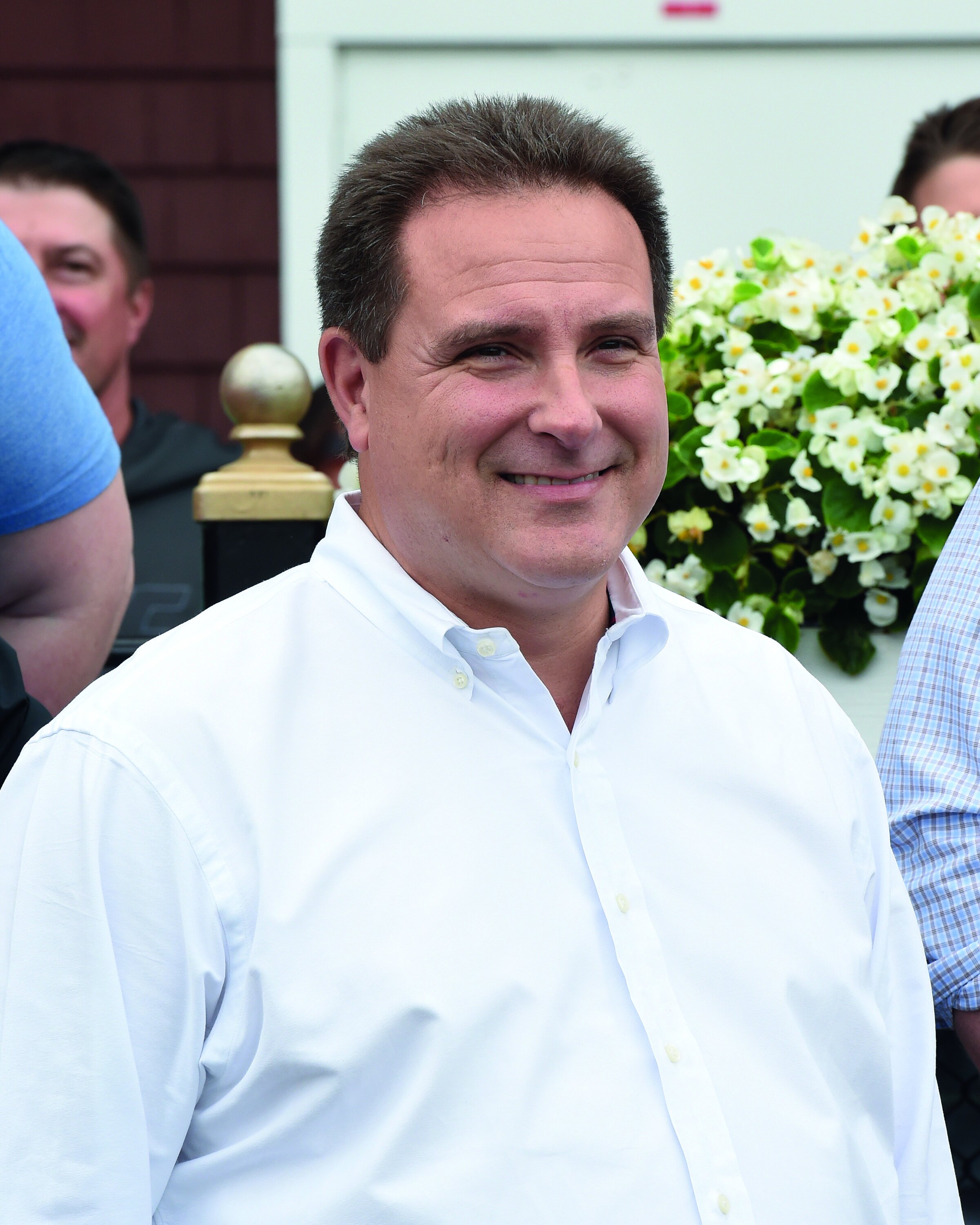#Soundbites - how can trainers improve racing's public perception / image?
Article by Bill Heller
Bruce Levine
Can you ask an easier question? The only thing I can say is, if more people came out in the morning to see a horse train, you’d get a better handle and feel on how fragile the horses are. When you run horses, injuries are going to happen. You watch football players, they don’t put them down, but they cart them off. Horses’ ankles are so much smaller. It’s a fact of life.
D. Wayne Lukas
I think that they should probably interact more with the general betting public and the fan base, and let the general betting public and fanbase know there are some real sound people training. Let them get to know personalities.
Richard Mandella
I would say that you have to deal with the public when you have a chance to, to explain what we do. Be as open as possible so we don’t keep training a secret, so that the public can appreciate what we do. It’s a very important question because we need to do everything we can to gain respect for the sport that we seem to be losing.
Mark Hennig
Do things the right way would be one thing. I think there’s a lot of negativity, especially in social media, but there are positives, too. Trainers can explain what goes on every day. We have so much love and care and admiration that goes into these horses. I don’t know if we do a good job getting that message out.
Mike Stidham
I think the most important thing is every trainer taking responsibility for his job to do the very best they can to keep the horses safe and healthy. Always do the right thing. Keep the horse first. Make the horse the priority. Because I think when you’re out in the public with people who don't know racing, they worry about horses dying. They see horses die. As trainers we don’t have total control over that, but we can make a difference by doing the right thing for the horses, giving them the benefit of the doubt. To me, that’s the most important thing.
Mike Trombetta
You know, obviously that’s a good question. I think the answer to that is of all the things that happen in racing, the good majority are upbeat stories. In our world, too much emphasis is on the negative. Just watch the news. It’s horrible to watch. If something bad happens, you hear about it five minutes later. With racing, there’s a million good stories we never hear about. It’s not talked about quite enough. Perception is reality.
Tim Hills
Be more accessible to the people at the races and the media. We’re always full disclosure. We’re not hiding anything. We love what we do and we want to share it with anyone who wants to know.
#Soundbites - How much do you rely on veterinarians’ input for day-to-day decisions?
By Bill Heller
Mark Hennig
I wouldn’t say I rely on them on a day-to-day basis. We evaluate horses after a workout. But day to day, there seems to be a horse we want to look at. If a rider has any kind of negative comment, we make a point of going over those horses at the end of the morning. And we also go over the previous day's workers. We do have vets if there is a soundness issue or a horse needs scoping.
Tim Hills
I’m married to a vet, Laine, so I very much respect their opinions. I’m not old-school. They only get a vet when the horse is near death.
Ron Moquett
Very little after what I’ve seen over the years. When I first started, the vets and blacksmiths weren’t allowed on the track until after the break. I use them for preventive stuff, taking care of the joints, because we’re asking these horses to do strenuous things. Other than that, I don’t rely on them at all.
Bret Calhoun
We use them when things get beyond our control—things like X-rays, ultrasound, scoping, things like that. Obviously we depend on them quite a bit for that. As far as day to day, we know our horses better than them. We see them every day. When there’s a change in them, obviously I bring them [vets] in for consultation. We use them for routine stuff like Lasix medications. Other than that, we don’t use them that much.
Mike Maker
Basically, we use a veterinarian as far as illness and lameness, and that’s about it.
Cliff Sise Jr.
I go over the horses myself pretty good. But sometimes a veterinarian’s suggestions are good, too. We have to rely on them in California. They check them for workouts; they check them for races. So we rely on a good vet.
Mark Glatt
How much do I rely on them? Because of the rules now, the veterinarians are heavily involved. Most of these horses are checked twice a week.
Eoin Harty
It all depends. You might go through a period where you only have a vet come to scope or vaccinate a horse. Then you go through a rash of bad luck, and you might have a veterinarian come for seven, eight days in a row. But the more experience you have, the less you rely on veterinarians. You see so much over the years. You can’t buy that education.
#Soundbites - The Racing Integrity Act - which will create uniform national medication rules and testing - seemingly on its way to becoming law - is that good or bad?
By Bill Heller
With the Racing Integrity Act, which will create uniform national medication rules and testing, passing the House of Representatives and seemingly on its way to becoming law, is that good or bad?
*************************************
Jimmy Toner
Jimmy Toner
I think it’s good in some respects. We need it. You go from state to state with medication protocol and licenses, and it drives you nuts. We need a national authority to oversee the sport. Same medication rules. Same whip rules. To get that all under one roof will be helpful in that aspect. The other side of the coin is the feds are involved. That might be a bad thing. If it’s an offense, then it's a federal offense.
***********************************
Bruce Brown
I think it’s very good. I am all for uniform rules at every track. It’s a little ridiculous now, always having to know what’s allowed and not allowed with protocols. Not just having a blanket that says this is how it is, this is what you can do, and this is what you can’t. Now, when I ship, I say what can we do here? What’s the difference? So we don’t do something that’s legal in one place and not legal in the other.
**********************************
Pat Kelly
I’m a little skeptical myself. Here in New York, our mid-Atlantic group has been very forward regarding medication standards, trying to get everyone on the same page. We’ve made a lot of progress trying to get the rest of the country to jump aboard with us. I’m not a big fan of big government.
*********************************
Eddie Kenneally
Eddie Kenneally
It’s very good. If it’s passed, the medication guidelines will be the same in every state, and the penalties will be the same in every state, and the testing will be done by the same lab. There are three reasons alone why it’s a good thing. I hope penalties will stick with no loopholes under this new law.
********************************
Linda Rice
Linda Rice
I think there’s a lot to be done on the bill. It’s the beginning of the process and it’s going to take time. But I think it’s a beginning, a start. I think it’s a good thing for racing.
******************************
Tim Hills
I think there is one exception we need. We need to study the Lasix question before we ban Lasix. Everything else, we’re all on board. I think anybody who is not for it has a guilty conscience.
********************************
Mike Stidham
Mike Stidham
I think that we need some uniformity in our industry. Whatever it takes to get that, to get everyone going in the same direction is a move forward. We need something to make this happen. It’s good for racing.
CLICK HERE to return to issue contents
ISSUE 58 (PRINT)
$6.95
ISSUE 58 (DIGITAL)
$3.99
WHY NOT SUBSCRIBE?
















